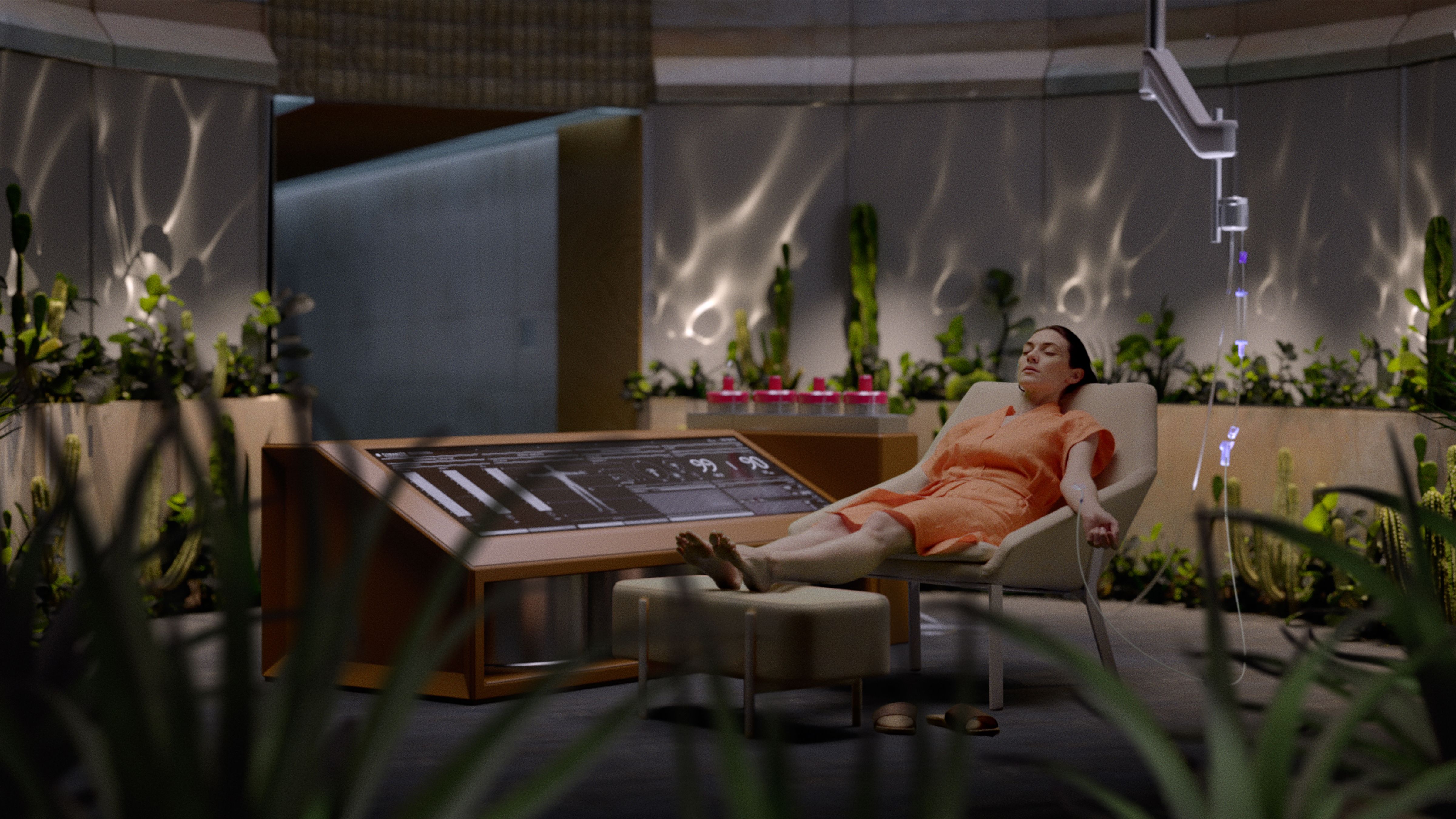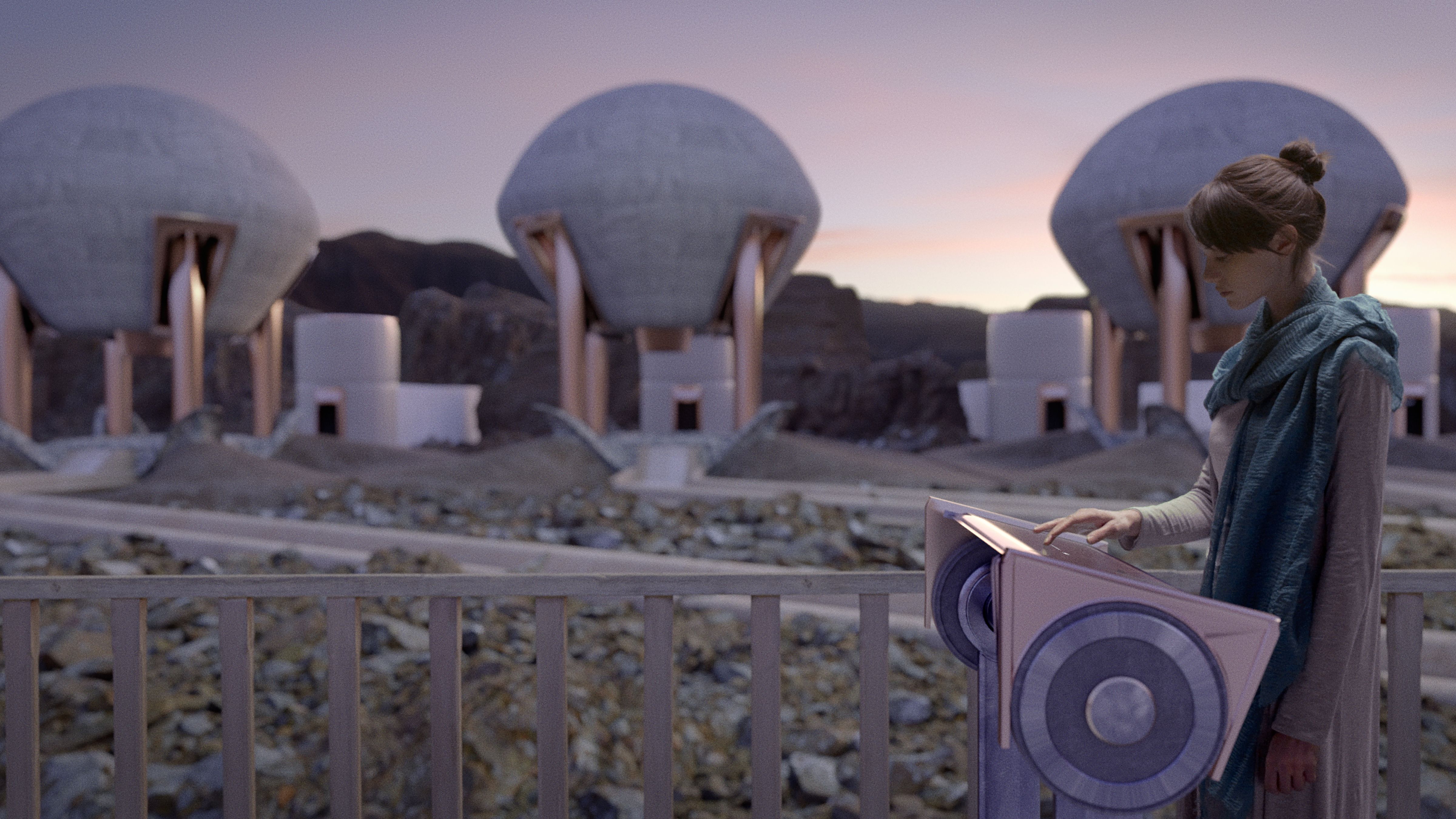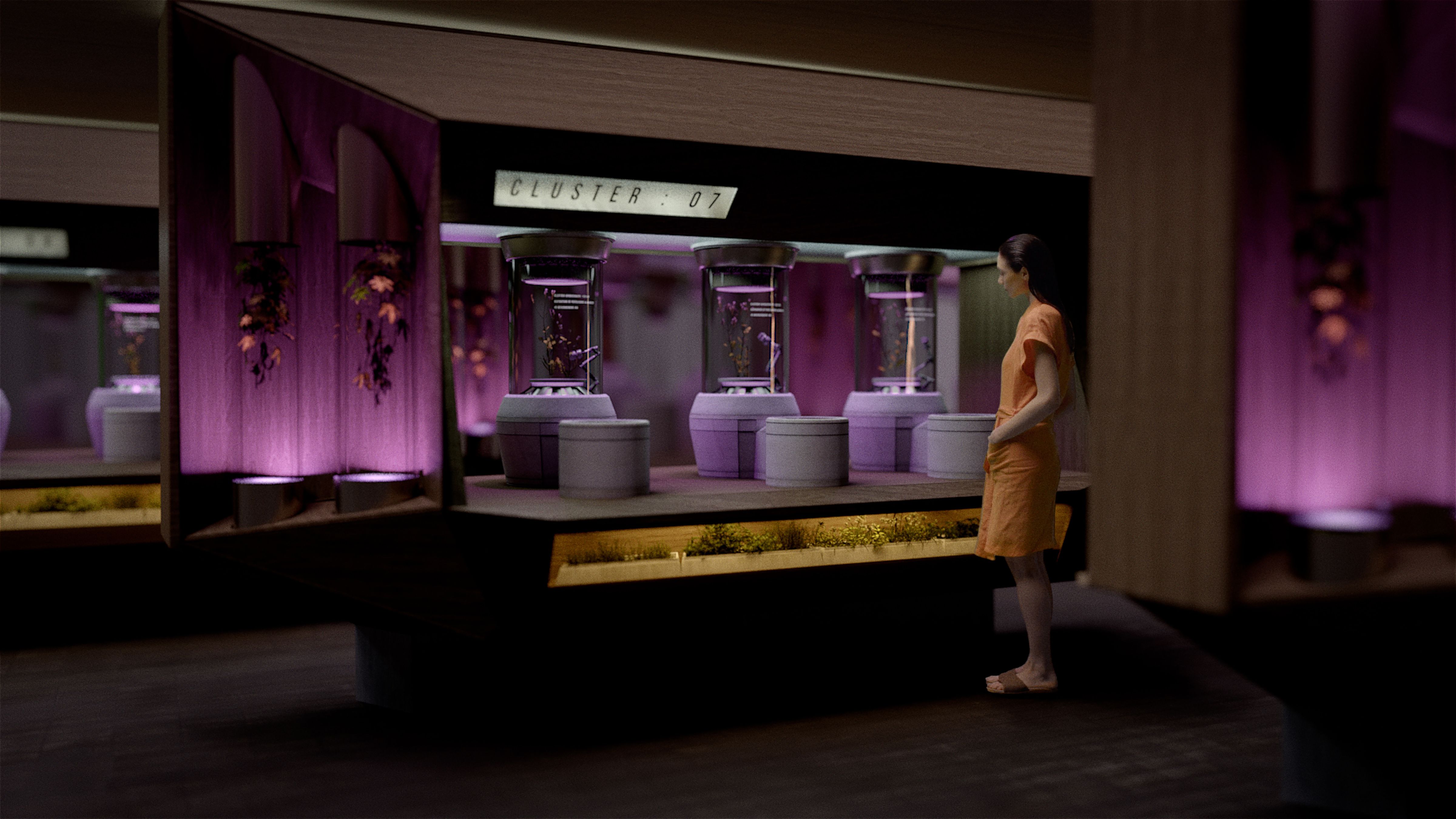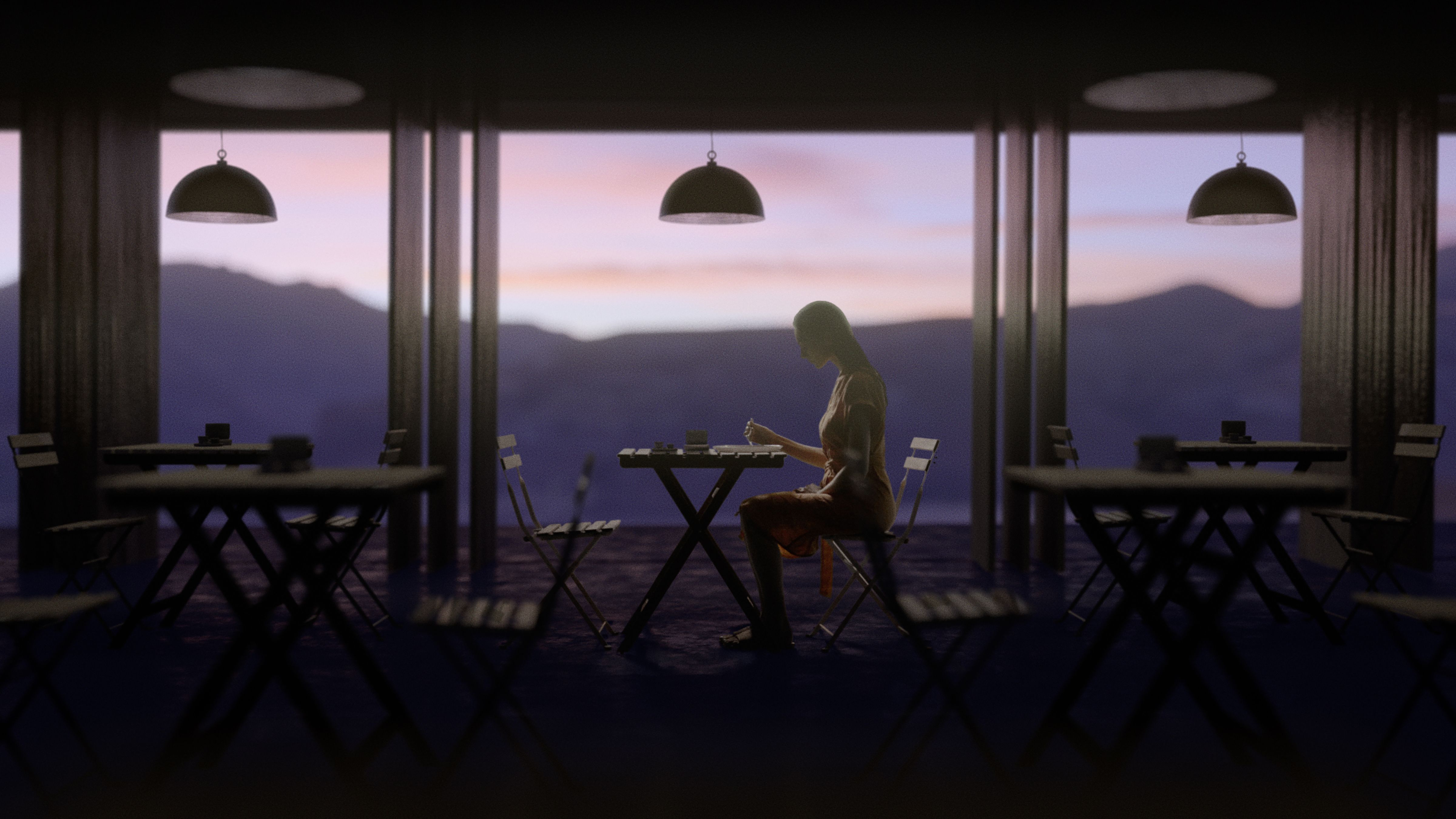Q: What type of person would book a visit to Spa Sybarite?
JD: In the film, we see our character, Marcy Davis, check in with a simple swipe. Her name pops up on the interface, and the system recognizes her origin, parses its climatic condition, and in combination with her electronic medical records (EMRs), runs a health analysis to recommend corresponding treatments. The display identifies her as a somewhat affluent woman who has traveled from a wealthy neighborhood in the San Fernando Valley in Los Angeles to avail of its services. This is the spa's target demographic that could perhaps be lured in through complimentary visits that are peddled through lifestyle management companies that offer their clients exclusive treatment packages.
Would you book a visit yourself?
It's a complicated question. One that I think is at the core of the project. As George Monbiot once said “Hypocrisy is the gap between your aspirations and your actions. Greens have high aspirations – they want to live more ethically – and they will always fall short. But the alternative to hypocrisy isn't moral purity (no one manages that), but cynicism. Give me hypocrisy any day. That being said, I would love to be a Sybarite... if I were able to afford self-indulgent luxury amidst the apocalypse to rejuvenate my own body, it would be hard to resist the temptation. I hope as a filmmaker I’ve made the viewer feel the same way.
I would love to be a Sybarite...if I were able to afford self-indulgent luxury amidst the apocalypse to rejuvenate my own body, it would be hard to resist the temptation
I think for me the morality of it becomes a lot blurrier and more confusing when I ask myself if I stood to profit from being commissioned to craft ad campaigns or design these infrastructures of care that are exclusionary to certain groups of people, would I take it on? If a professional or practitioner, even a successful one, declines a project in our current system, they are balancing tremendous financial obligations with tenuous and dwindling job security. So unless there’s a radical reshaping of our economic policies to ensure that they serve to bridge rather than widen the existing disparities, the benefits of maintaining and perpetuating inequality will always be at odds with one’s ethical stance.







